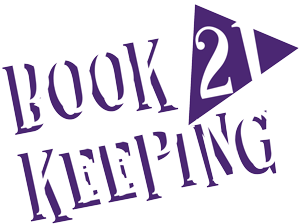Proper bookkeeping is essential for the survival and growth of small businesses. Truth is that many business owners learn the hard way after they have suffered through the repercussions of ignoring their bookkeeping. Hopefully, you aren’t one of those, and you are trying to figure out how best to go about maintaining the books for your business. Should you do it yourself, hire an employee, or outsource the task to a professional service?
There are pros and cons of both, outsourced and in-house bookkeeping. By objectively weighing the options against each other, you will be able to make an educated choice.
In-House vs. Outsourced Bookkeeping
In-house bookkeeping comes in a few different flavors. As a business owner, you might take on the responsibility yourself. You may ask one of your employees to do it, or if you can afford it, you can hire a dedicated bookkeeper or an accountant (the latter will cost you a lot, as a full-time employee). These used to be the only options for small businesses when outsourcing wasn’t so common and not so readily available. But thanks to the internet, the process of outsourcing has been thoroughly refined, and businesses can make a choice from a wide variety of options.
We can compare in-house and outsourced bookkeeping on:
Quality of Work
Apart from a small number of in-house success stories, quality of work is where outsourced bookkeeping wins hands down. It’s easy to see why! Most small business owners maintain their business’s books themselves or they ask one of their employees to do it. Neither are professionally trained or certified and usually have no bookkeeping experience. Whatever they learn, they learn by keeping their own business’s books (or through internet research).
In contrast, professional bookkeepers have formal training, years of experience backing up their knowledge, and exposure they gain by working with a variety of clients. They usually develop good bookkeeping habits and an eye for details. And since they know how all the pieces fit together, they can keep track of transactions and record information that a business owner might consider irrelevant.
Also, when you hire a bookkeeping service, you get to benefit of having an expert handle your books. When just one, untrained person is in charge of the books (for in-house bookkeeping), chances of errors are high. But if a professional service is handling your books, they’ll have cross-checking systems in place to ensure your records are as accurate as possible.
If you hire a professional and dedicated bookkeeper for your business, then the quality of your in-house bookkeeping may be on-par with outsourced bookkeeping. But that scenario is not feasible for most small-scale businesses.
Cost
A full-time bookkeeper’s yearly salary is about $40,000 to $45,000. That’s not including the overhead expenses of a full-time employee. Salaries for accountants are significantly higher, especially those willing to take on bookkeeping services as well.
In contrast, outsourcing your business’s bookkeeping usually only costs a fraction of a full-time employee’s salary. That’s because you only need to pay for the services you require. With a full-time bookkeeper, you will be required to pay the agreed-upon salary, even if you don’t need the full suite of bookkeeping services. But by outsourcing, you can create a customized service plan, where you only pay according to your bookkeeping needs, and for specific services you require. Also, there are no overhead costs.
Training and Adaptability
If you are not hiring a full-time bookkeeper, either you or another employee will have to maintain your business’s books. So there will be a learning curve and a lot of amateur mistakes. That’s usually not an issue, especially if you can fix your mistakes before it’s time to do your taxes. But if you or your employee fails to record some transactions, records transactions incorrectly, or loses important documents like receipts, cash memos or invoices, you will have a hard time doing your business’s taxes and defending yourself to the IRS in an audit.
When you outsource bookkeeping, look for a certified bookkeeper. Being certified means they know advanced bookkeeping standards, understand the GAAP accounting process, and usually carry Errors & Omissions insurance. There will be significantly fewer errors (if any) and they’ll make sure your books are thoroughly accurate and complete.
Better Resource Management
When you run a business, efficient use of your resources can mean the difference between growth and failure. One of the most undermined resources is the business owner’s time. If you are spending a lot of time on learning bookkeeping or managing books yourself, it might not be the most efficient use of this precious resource. Instead of focusing your time and energy on something, thinking you are saving a few hundred bucks, you can redirect your attention to your core competency and growing your business, by outsourcing the task of bookkeeping.
By outsourcing, you can free up your time (or your employee’s time) without compromising on the quality. In fact, you will receive better quality work by more competent professionals, compared to what you would have done yourself.
Financial Understanding
With in-house bookkeeping, especially if you are doing it yourself, you can have your finger on the pulse. You are able to monitor your cash-flows on a daily/weekly basis if you are keeping your bookkeeping up-to-date. Sometimes, once businesses outsource their books, they can get lax about monitoring their business’s financial health as well. However, by choosing the right bookkeeping partner, you can ensure that you are getting more than just a clean set of books. You are getting helpful advice, actionable insights, and constant updates about your business. This way, you won’t lose sight of what’s important, even if you have handed over bookkeeping to someone else.
Probability of an Audit
A poorly maintained set of business books invites accounting disasters, incomplete tax reporting, and consequently increases the probability of an audit. If you are unsure that you or your employee will not do a good job of it, it’s better that you outsource the task to make sure that it’s done right. It’s even more important for sole proprietorship businesses that are unable to keep their business and personal income separate. A third-party bookkeeper will be objective and unbiased about the records and is likely to minimize your chances of being audited.
Privacy
Keeping a business’s financial data private is almost every business owner’s responsibility. You may need to share some of the stats and even your books to potential partners or investors, but it’s done in a controlled environment and a confidential setting. Privacy isn’t a concern if you are doing your books yourself. But if you are delegating the task to a part-time employee, or even someone who wouldn’t stay with your business for more than a few years, you can’t be sure of your data’s privacy.
Outsourcing doesn’t seem a very prudent choice in this regard as well, as you are effectively opening up your records and finances to an outside source. But a certified bookkeeping service maintains a strict code of security and confidentiality and is committed to a Code of Ethics assuring a commitment to integrity. It’s important to them that their clients can trust them with their data. Usually, their data security is far beyond that of the business owner.
Growth and scalability
Many small businesses do not have extensive bookkeeping requirements or needs when they start. Even in the first few years of modest growth, the revenues, transactions, and consequently, the relevant records stay manageable. But there comes a time when a business needs to scale up. At that time, business owners either need to enhance their in-house bookkeeping capabilities by sharing the responsibility with someone else, hire a dedicated bookkeeper, or outsource.
Out of the three, outsourcing tends to be the most “scalability-friendly” option since most professional bookkeeping services have the capacity to absorb a significant amount of newly needed bookkeeping responsibilities when a business scales up.
Industry-Specific Needs
While it’s a rarity in small businesses, but if your bookkeeping and accounting needs are unique and very different from the norm, in-house bookkeeping might be the better fit for your business.
Final Words
As you can see from the comparison, the advantages of outsourcing the bookkeeping responsibility far outweigh the cons, for small to medium-size businesses. Large organizations and extended businesses have to cultivate sufficient in-house accounting and bookkeeping resources in most cases. It doesn’t mean that in-house bookkeeping isn’t a viable option at all. About 37% of the small businesses outsource their accounting and bookkeeping. The rest of the businesses utilize some kind of in-house bookkeeping resource.
The problem is that bookkeeping is too important to be learned through trial and error. If you have decided to maintain your books yourself, it’s time for real training. Some tips that you might find helpful are:
• Keep a clear distinction between personal and business expenses. Preferably use separate accounts and credit cards for both.
• Choose the best bookkeeping software according to your business’s needs.
• Record everything and catalog all accompanying documents/digital records.
• Be prompt about sales invoicing.
• Adopt good bookkeeping practices right from the beginning.
If you start to feel that you are not doing a good job of maintaining a clean and complete set of books, or that you are spending too much time bookkeeping, which time you could have spent more constructively otherwise, it might be time to consider outsourcing your bookkeeping to a professional.

